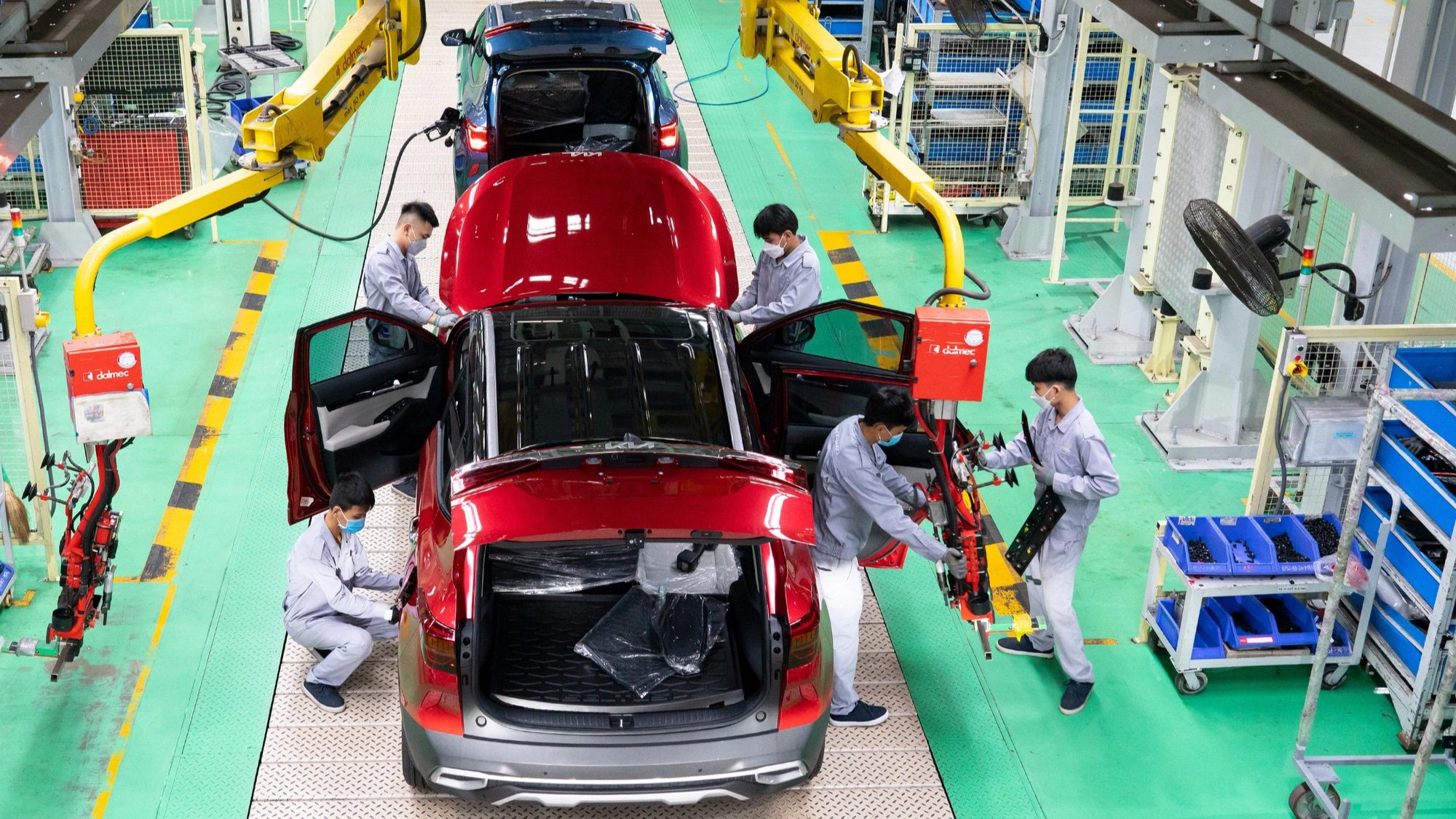
Domestic automobile production and assembly will benefit from the Ministry of Finance's recent proposal to reduce registration fees by 50% - Photo: HUU HANH
One of the main reasons for the fourth proposal to reduce registration fees is to promote production and consumption. So how effective were the previous ones?
Third fee reduction, business results still decrease
Since the COVID-19 pandemic broke out (2020), Vietnam has applied a 50% reduction in registration fees for domestically assembled and manufactured cars three times.
Looking at the 2022 business results at many businesses, the impact of the registration fee reduction policy is positive as sales have clearly improved.
However, it should be noted that 2022 is the first year of strong economic recovery after the lifting of social distancing. According to statistics from the Vietnam Automobile Manufacturers Association (VAMA), the total sales of the Vietnamese automobile market reached more than 500,000 units, breaking all previous records.
With the third reduction in registration fees in the second half of 2023, this policy seems to no longer be able to revive the auto market, which has seen a sharp decline in purchasing power.
According to Tuoi Tre 's analysis based on financial reports of many large domestic automobile enterprises, car sales improved in the second half of 2023, but the whole year was still difficult.
Like Hang Xanh Auto Service Joint Stock Company, the audited financial report for 2023 shows that revenue only reached VND 3,981 billion - equal to 59% compared to 2022. Profit after tax was VND 37 billion, "evaporating" more than VND 200 billion (equivalent to -84%) compared to 2022.
Or Vietnam Engine and Agricultural Machinery Corporation (VEA) - a unit with "huge" annual profits from joint ventures with leading car manufacturers such as Toyota, Ford, Honda - is no exception.
In the last quarter of 2023, VEA recorded a sharp decline in revenue and profit, down 23% and 37% respectively compared to the same period. For the whole year, VEA's after-tax profit was VND 6,297 billion, down nearly 18%.
In 2022, Thaco's after-tax profit was 7,420 billion VND, but in 2023 it was only 2,734 billion VND, a decrease of nearly 4,700 billion VND. Many other big-name businesses were also unhappy, such as Savico's 2023 profit decreased by 93%, and TMT Auto's profit decreased by 98%.
SSI Securities analysts said that despite stimulus measures from both the government and distributors, sales remained low as consumers tended to delay buying cars during difficult economic times. According to SSI calculations, sales of new cars and motorbikes in 2023 will decline by 25% and 17% respectively compared to the same period.
Expert NGUYEN MINH DONG
Buy when fees are reduced
Mr. Nguyen Minh Dong - an auto expert - observed that reducing registration fees often causes the market to slow down in the period before application to rush to buy at the time of fee reduction.
"Buyers have a wait-and-see mentality. The market will increase better when this support policy is about to expire. After the incentive period ends, the market is gloomy again. Many people who want to buy new products are waiting," said Mr. Dong.
This expert, who has worked for many years for a large foreign car company, believes that the domestic car market has long lacked fundamental, long-term policies to promote sustainable development. Proposing a reduction of a few months every year will create a habit of "waiting" for consumers.
"Maybe this business or that business, this user or that user benefits, but whether it is really good for the whole market or not, we should reconsider," Mr. Dong wondered.
Mr. Dong also said that companies that want to stimulate demand and reduce inventory will have appropriate promotional policies. There needs to be policies with a longer-term vision for the auto industry, so that production costs can be reduced, prices can be lowered, and businesses can increase their real competitiveness.
Mr. Dong believes that reducing car fees for a few months now and then a few months next year will not help the industry grow stronger, but will be like "rescuing" dragon fruit and watermelon. On the business side, Mr. Dong recommends being proactive, combining many other synchronous solutions on promotions, after-sales service, and improving service quality, helping the car market revive purchasing power.
According to Tuoi Tre 's research, at the end of 2023, many people rushed to buy cars to enjoy the 50% registration fee. But after this incentive expires, to stimulate shopping, many car companies and dealers still increase promotions to "compensate".
Many car models have been given cash by dealers equivalent to 100% support for registration fees. This means that the market is also fully capable of self-regulating.
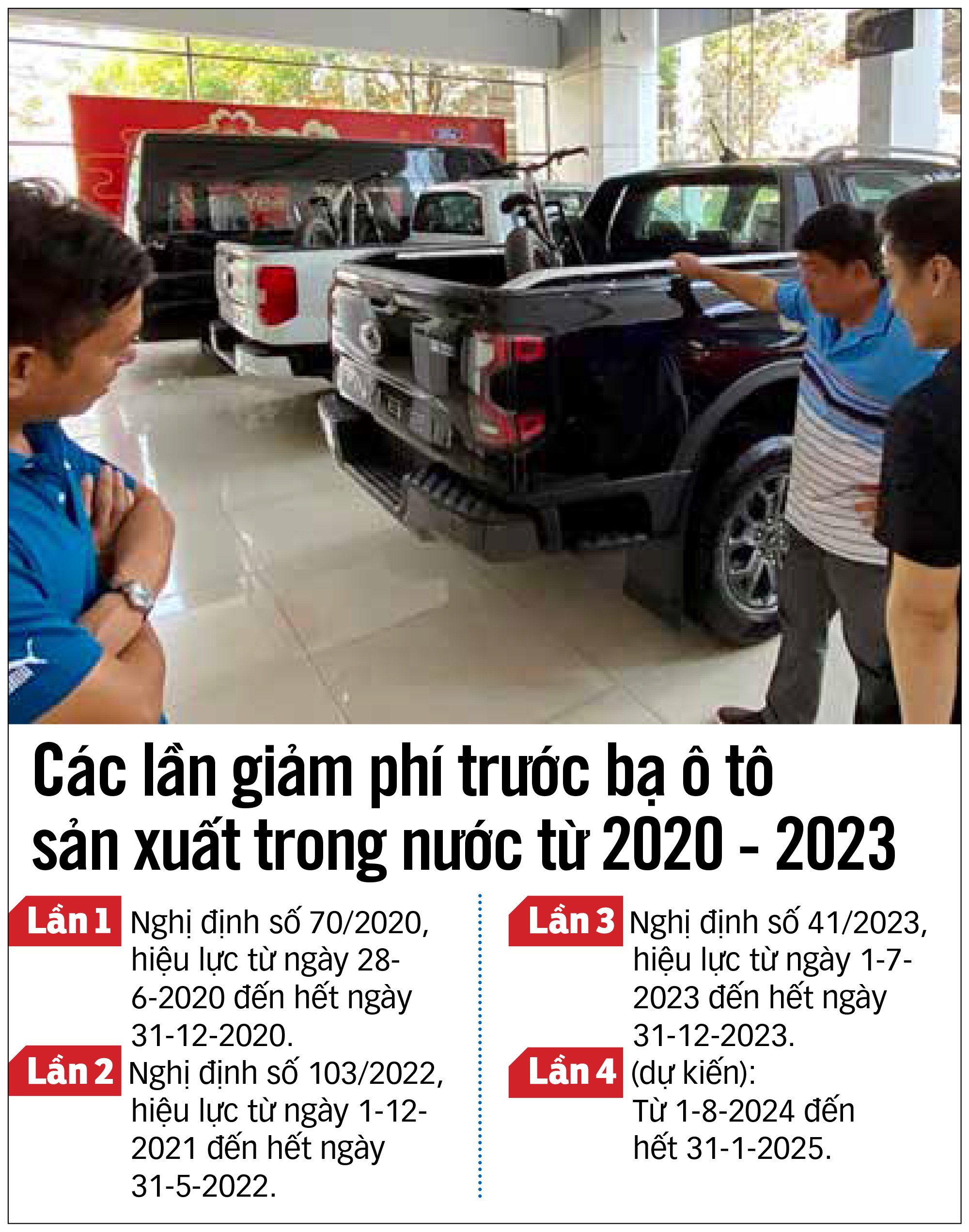
Graphics: N.KH.
Need harmonious, long-term policies
Talking to Tuoi Tre , Mr. Nguyen Ngoc Tu (Hanoi University of Business and Technology) said that it should be considered and weighed to create more synchronization and harmony with tax and fee policies. Commenting that the registration fee applied to cars of up to 12% is very high, Mr. Tu said that it should be considered to legalize the fee reduction instead of proposing a reduction for a few months every year, creating a waiting mentality...
However, it should be considered to apply to both domestic assembly and import, and all types of cars in general. "Vietnam has entered the global playground, only domestic incentives will not work forever," Mr. Tu emphasized.
Regarding the opinion that reducing registration fees is a favor to the rich, Mr. Phan Phuong Nam - Deputy Head of the Department of Commercial Law (Ho Chi Minh City University of Law) - also said that stimulating demand can promote domestic production, creating a spillover effect, not just benefiting the rich.
"However, the authorities need to have a harmonious solution to avoid tax and fee inconsistencies. Many import businesses have recently voiced their opposition and are "unsettled" about this. These reactions also need to be taken into account," said Mr. Nam.
Mr. Nam recalled that in 2023, the Ministry of Finance also did not agree to reduce registration fees for domestic cars because it was worried about affecting international commitments.
In the latest document proposing to reduce registration fees, in addition to the benefits for the domestic automobile manufacturing and assembly industry, the Ministry of Finance continues to affirm that there are negative impacts on the state budget and international commitments.
"So how has this issue been reviewed?", Mr. Nam asked. To develop the automobile industry in a more sustainable direction, Mr. Nam said that there needs to be a clear and fair roadmap. This will create conditions for domestic manufacturing and assembly enterprises and importers to be proactive, instead of being "anxious" and passive.
Registration fee reduction, dealer cuts promotion
According to some auto sales and marketing staff, when hearing the news that registration fees could be reduced, many customers hope to enjoy double benefits from both businesses and the State. However, customers need to clearly understand the sales policies of each dealer and each car model to avoid disappointment when dealers reduce promotional policies right when the State applies registration fee reduction.
In fact, last year, social media was abuzz with the incident of a customer reporting that he had signed a car contract worth over 1 billion VND and had deposited hundreds of millions. However, after that, the market suddenly applied a policy of reducing registration fees, so the car dealer demanded to increase the car price to the "new price" equal to the listed price, no longer reducing it for customers.
Source: https://tuoitre.vn/giam-50-phi-truoc-bao-o-to-san-xuat-trong-nuoc-co-phai-uu-dai-nguoi-giau-20240630222858165.htm


![[Photo] Special relics at the Vietnam Military History Museum associated with the heroic April 30th](https://vstatic.vietnam.vn/vietnam/resource/IMAGE/2025/4/3/a49d65b17b804e398de42bc2caba8368)
![[Photo] A brief moment of rest for the rescue force of the Vietnam People's Army](https://vstatic.vietnam.vn/vietnam/resource/IMAGE/2025/4/3/a2c91fa05dc04293a4b64cfd27ed4dbe)
![[Photo] Prime Minister Pham Minh Chinh chairs meeting after US announces reciprocal tariffs](https://vstatic.vietnam.vn/vietnam/resource/IMAGE/2025/4/3/ee90a2786c0a45d7868de039cef4a712)
![[Photo] General Secretary To Lam receives Japanese Ambassador to Vietnam Ito Naoki](https://vstatic.vietnam.vn/vietnam/resource/IMAGE/2025/4/3/3a5d233bc09d4928ac9bfed97674be98)

![[Photo] Moment of love: Myanmar people are moved to thank Vietnamese soldiers](https://vstatic.vietnam.vn/vietnam/resource/IMAGE/2025/4/3/9b2e07196eb14aa5aacb1bc9e067ae6f)
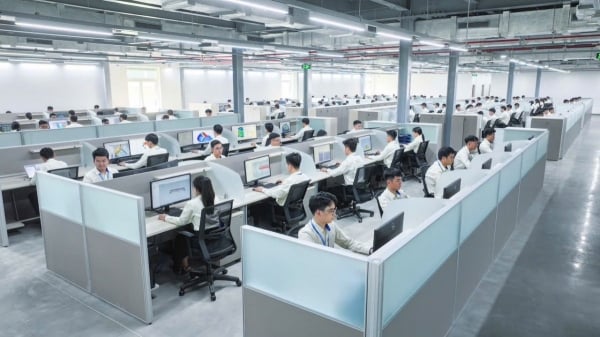




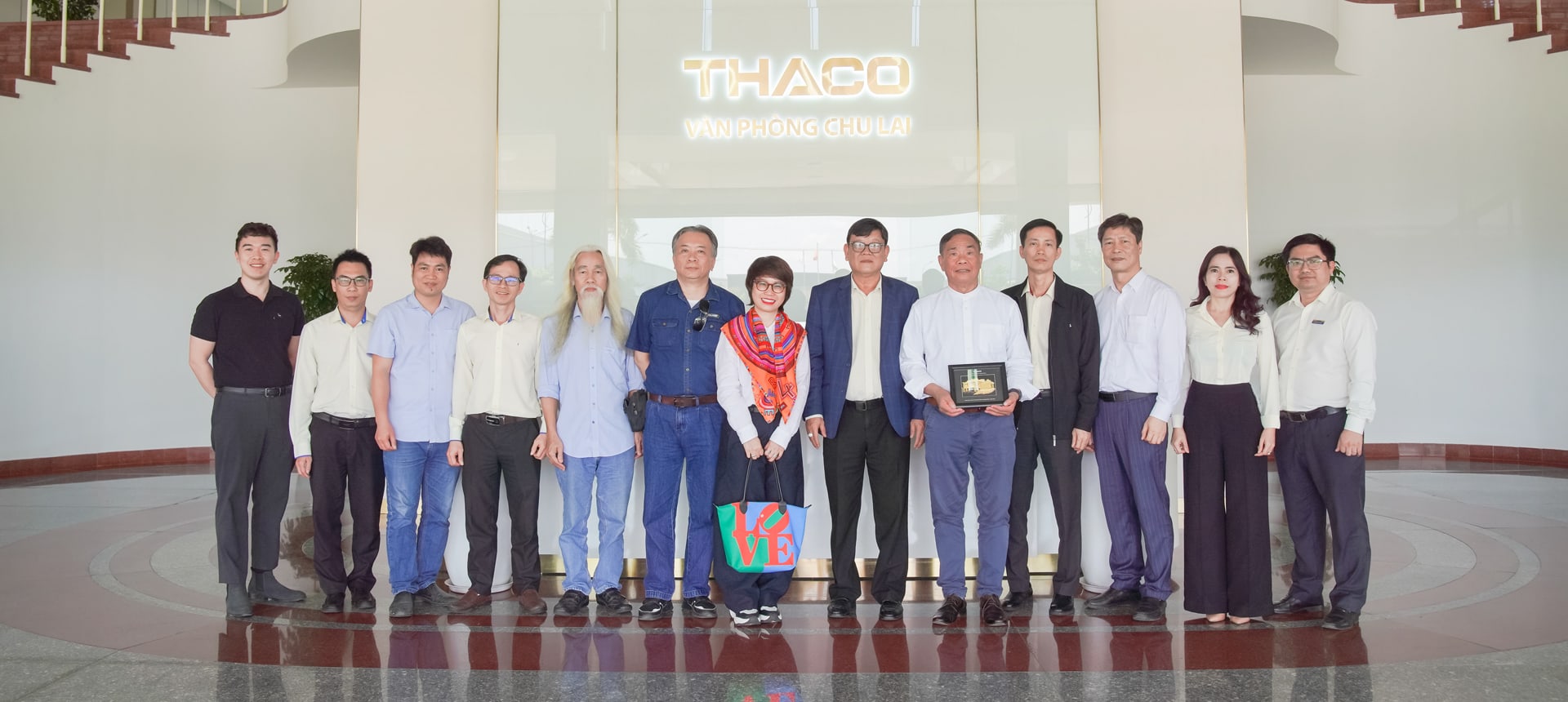
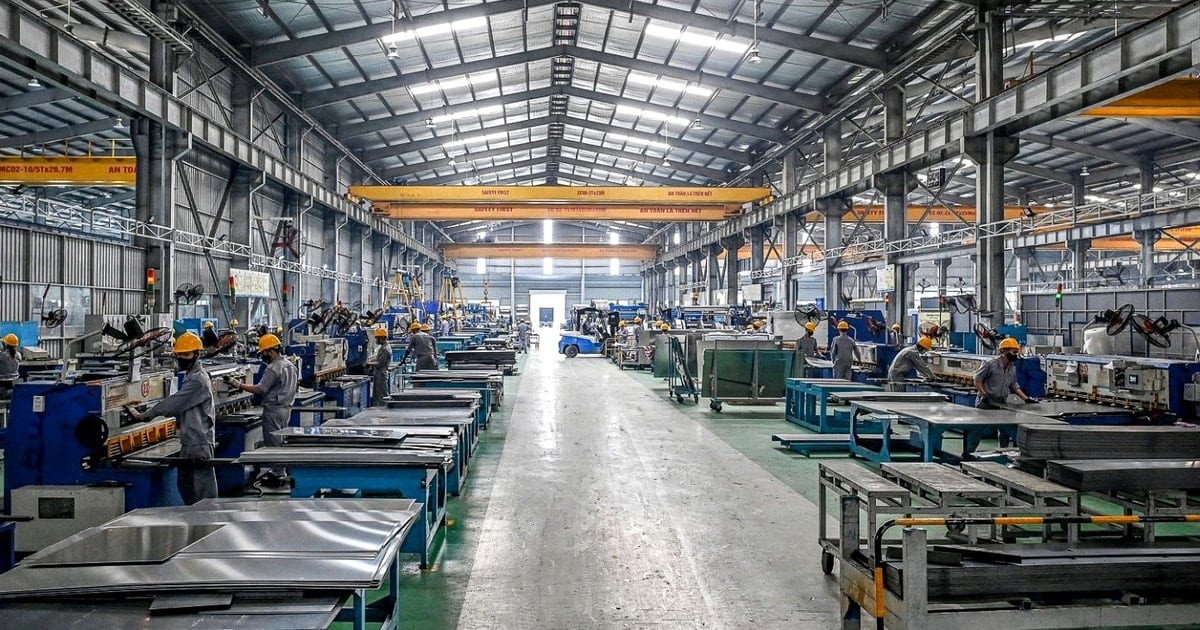
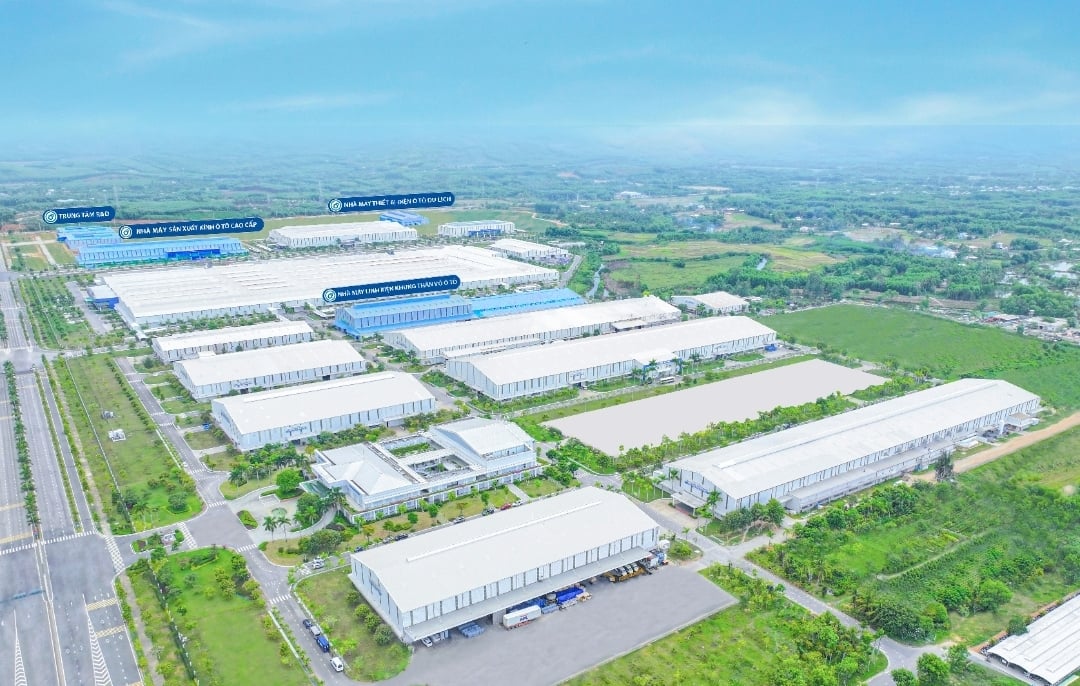

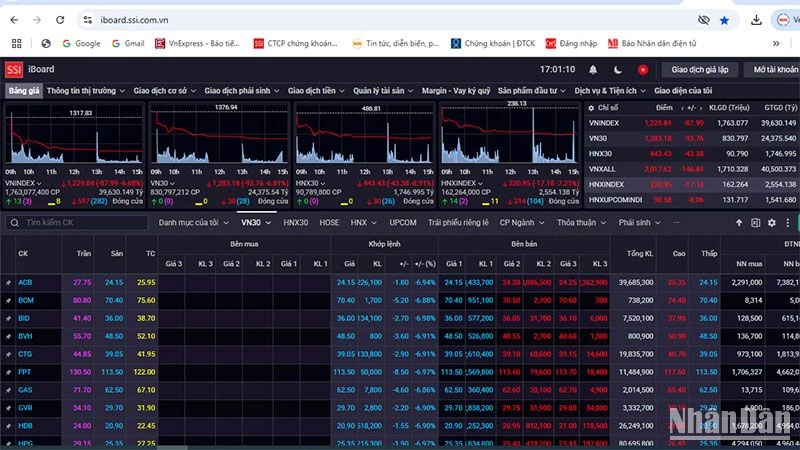
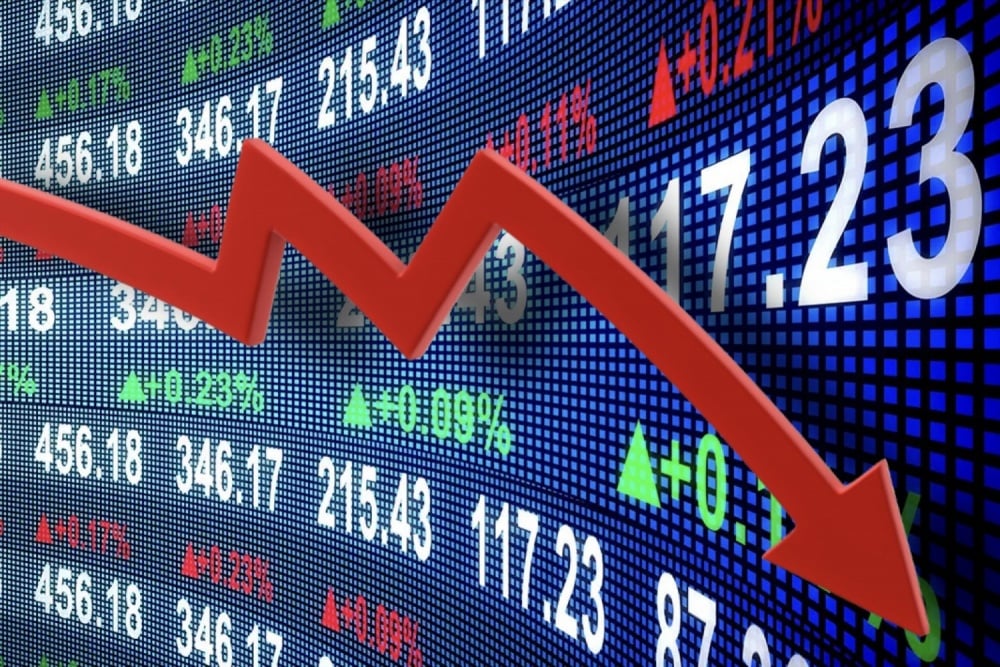

![[Infographic] Government bond market March 2025](https://vstatic.vietnam.vn/vietnam/resource/IMAGE/2025/4/3/e13239cdbcfd4968abc836c201204c43)
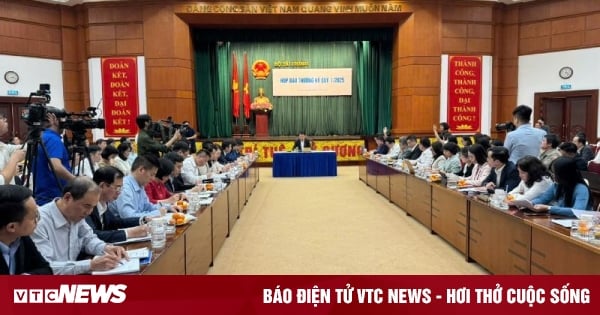
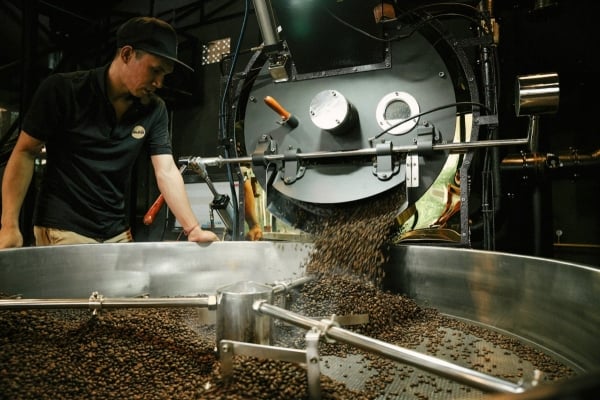




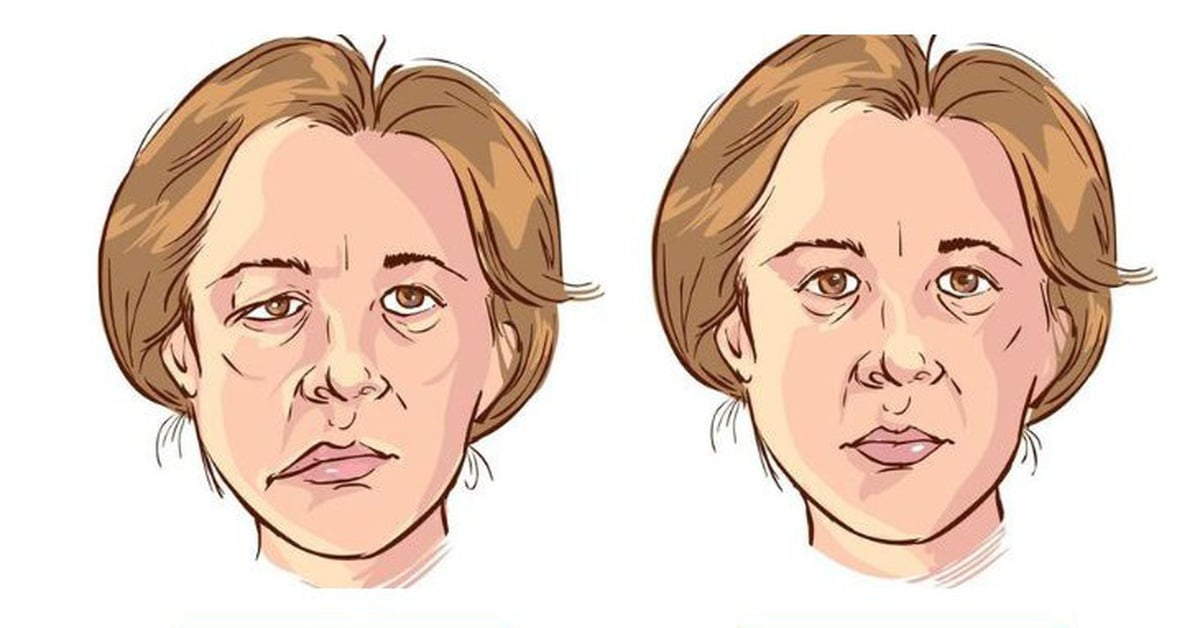


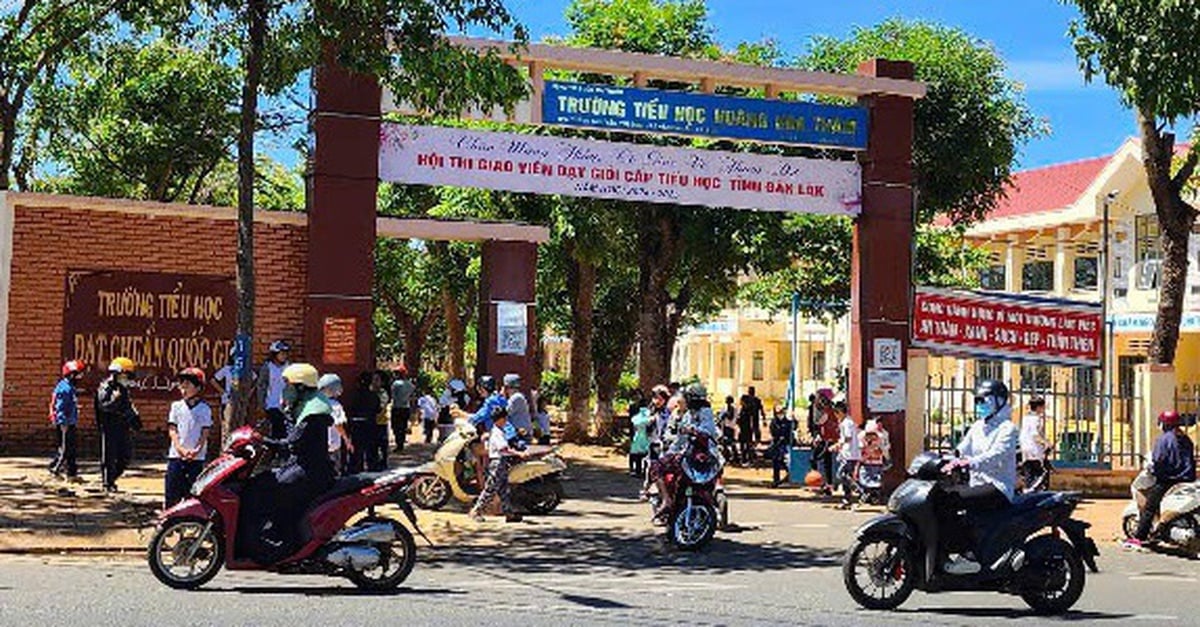












































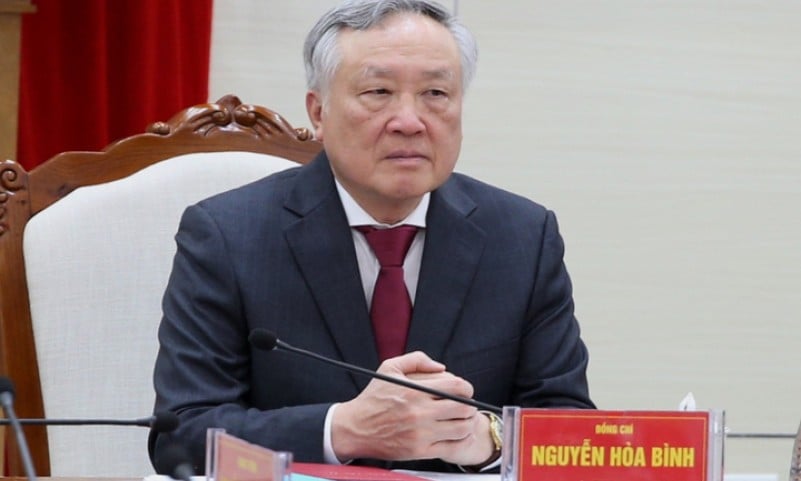
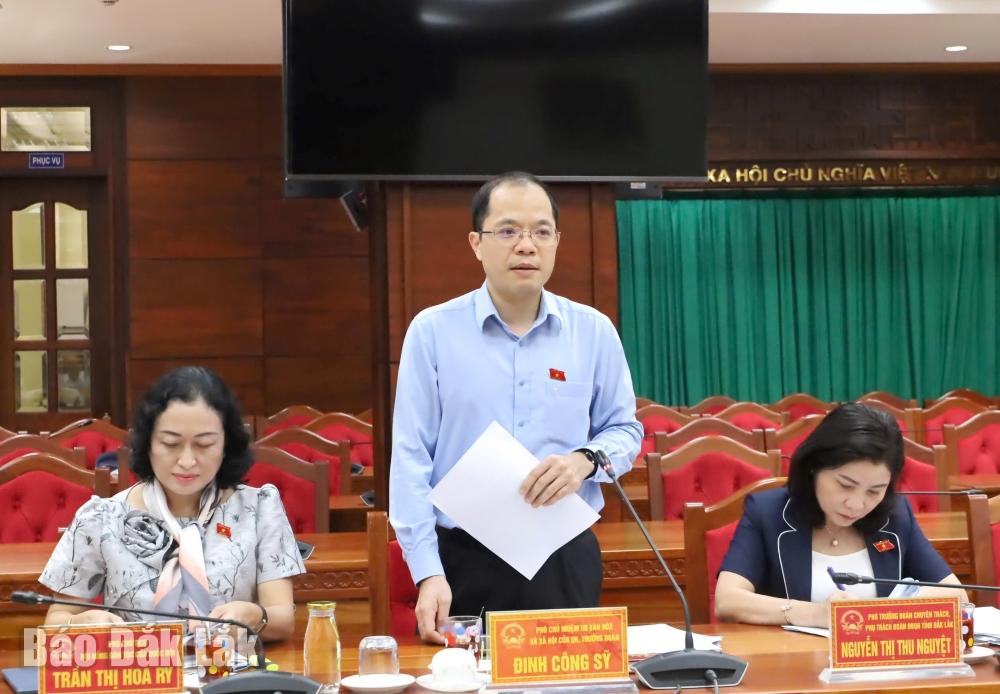

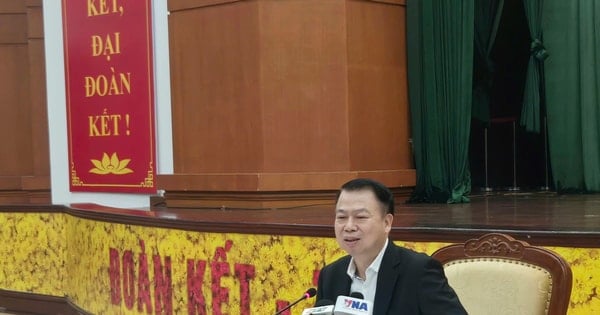

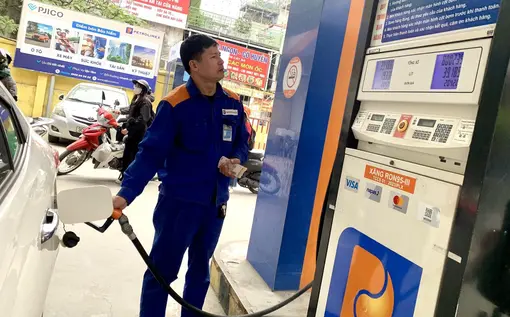

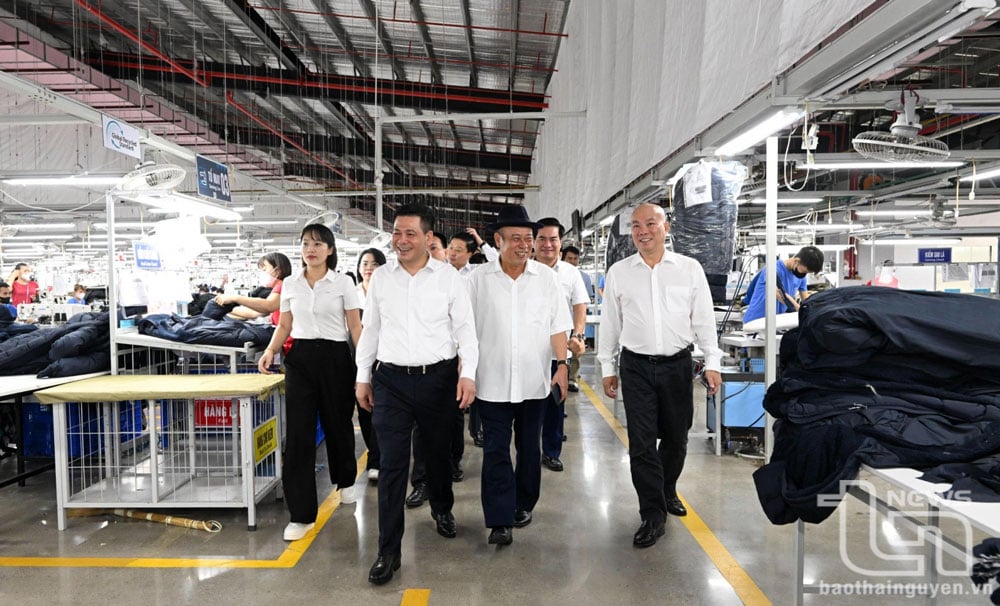












Comment (0)